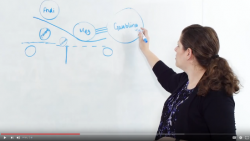Working with Families in Problem Gambling Treatment
Please Note:
The Working with Families in Problem Gambling Treatment online courses are now being hosted by the Oregon Health Authority Problem Gambling Services and the Oregon Council on Problem Gambling, through the Advanced Career Online Resource Network. Registration for this training series (totaling 30 CEUs) can be found here.
Working with Families in Problem Gambling Treatment is a free series of 10 online training modules designed for problem gambling counselors and supervisors, as well as other mental health professionals, who want to learn more about including family members and important others in problem gambling treatment. This series is also designed for problem gambling administrators and prevention specialists who want to learn more about the role family members and important others can play in problem gambling treatment and the impact of problem gambling on families.
The modules are based on Oregon’s Working with Families in Problem Gambling Treatment manual, which is available to download after registering for the series. Each module covers one of 10 chapters in the manual, along with related content and provides examples of applying core clinical concepts.
These modules must be taken in order as each module builds on information offered in previous modules. Participants who complete the series are awarded a total of 30 continuing education units (CEUs). Three CEUs are awarded after completing each module.
Training Module Descriptions
1.) Involving Family and Important Others in Treatment
Introduces participants to working with families and covers the “who, when, why, and how” of involving family members and/or important others in problem gambling treatment.
2.) Select Concepts in Family Therapy and Models for Problem Gambling Treatment
Offers some basic theoretical concepts from the field of family therapy. While not meant to replace extensive training in family therapy, the module offers a number of concepts that are useful in working with families in problem gambling treatment.

3.) Risk Assessment and Safety Planning
Reviews how to include family/concerned others in risk
assessment and safety planning. It includes risks that others may face when someone they care about is gambling.
4.) Family, Disclosure, Assessment and Psycho-Education
Reviews family assessment and provides an example of a family assessment form. It also includes how to prepare family for and facilitate disclosure of gambling and debt to family/concerned others. Examples are offered of psychoeducation in family treatment contexts.
5.) Including Family in Service Planning
6.) Helping Families Support and Meet Relational Goals
Focuses on how to help families support recovery directly as well as make relational changes that enhance wellness.
7.) Motivational Interviewing with Families
Motivational Interviewing is frequently used with individuals struggling with gambling problems. This module extends the use of motivational interviewing to work with families.
8.) Facilitating In-Session Interactions
Offers guidance for how to manage conflict and facilitate meaningful conversations among family members/important
others in ways that create lasting change.
9.) Working with Children and Adolescents
Children are often left out of problem gambling treatment. This module offers rationale for including children as well a child-centered counseling practices.
10.) Socioculturally Attuned Treatment
Explores the connection between recovery and equity, offering a model for attuning to societal and relational differences and inequities in treatment for disordered gambling.
Center for Community Engagement is located in Rogers Hall on the Graduate Campus.
MSC: 85
email cce@lclark.edu
voice 503-768-6040
fax 503-768-6045
Director Matsya Siosal
Center for Community Engagement
Lewis & Clark
615 S. Palatine Hill Road MSC 85
Portland OR 97219